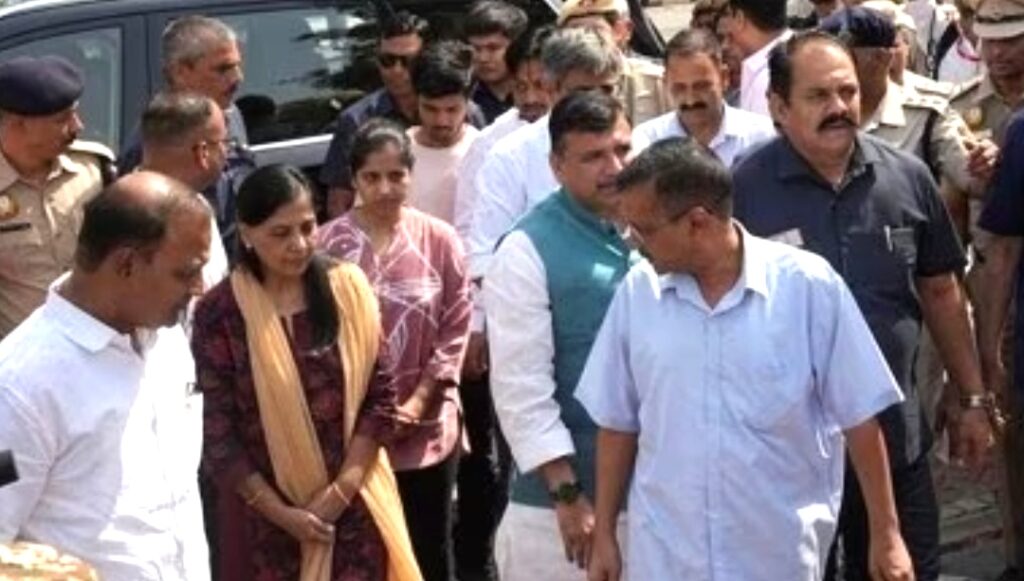Manashimaya

In a significant turn of events, Delhi Chief Minister Arvind Kejriwal has been subjected to questioning by the Central Bureau of Investigation (CBI) regarding the controversial excise policy case. On Monday, Kejriwal was interrogated in Tihar jail, where the CBI recorded his statement. This development has intensified the scrutiny surrounding the Delhi CM, and as per CBI sources, he may be presented before a trial court tomorrow. The CBI is expected to request his custody, marking a critical juncture in this high-profile case.
Arvind Kejriwal: CBI questions Delhi CM in excise policy case, may present him before trial court tomorrow. This headline has captured widespread attention, reflecting the heightened public interest in this case. The investigation delves into alleged irregularities and potential misuse of power in the implementation of Delhi’s excise policies, casting a shadow over Kejriwal’s administration.
AAP Rajya Sabha MP Sanjay Singh has voiced strong allegations against the Centre, accusing it of conspiring to undermine Kejriwal. Singh claims that despite the strong possibility of the Supreme Court granting bail to Kejriwal, the Centre is orchestrating a fake CBI case to facilitate his arrest. These accusations have further polarised public opinion, with Kejriwal’s supporters rallying to his defence, while critics demand a thorough and impartial investigation.
Earlier in the day, the Delhi High Court stayed a decision to grant regular bail to Arvind Kejriwal, which had been allowed by a trial court. Justice Sudhir Kumar Jain noted that the trial court had not adequately appreciated the evidence presented by the Enforcement Directorate (ED). Additional Solicitor-General S.V. Raju argued that the Central agency had not been given sufficient opportunity to argue its case. The High Court’s ruling underscores the procedural complexities and legal challenges that lie ahead.
